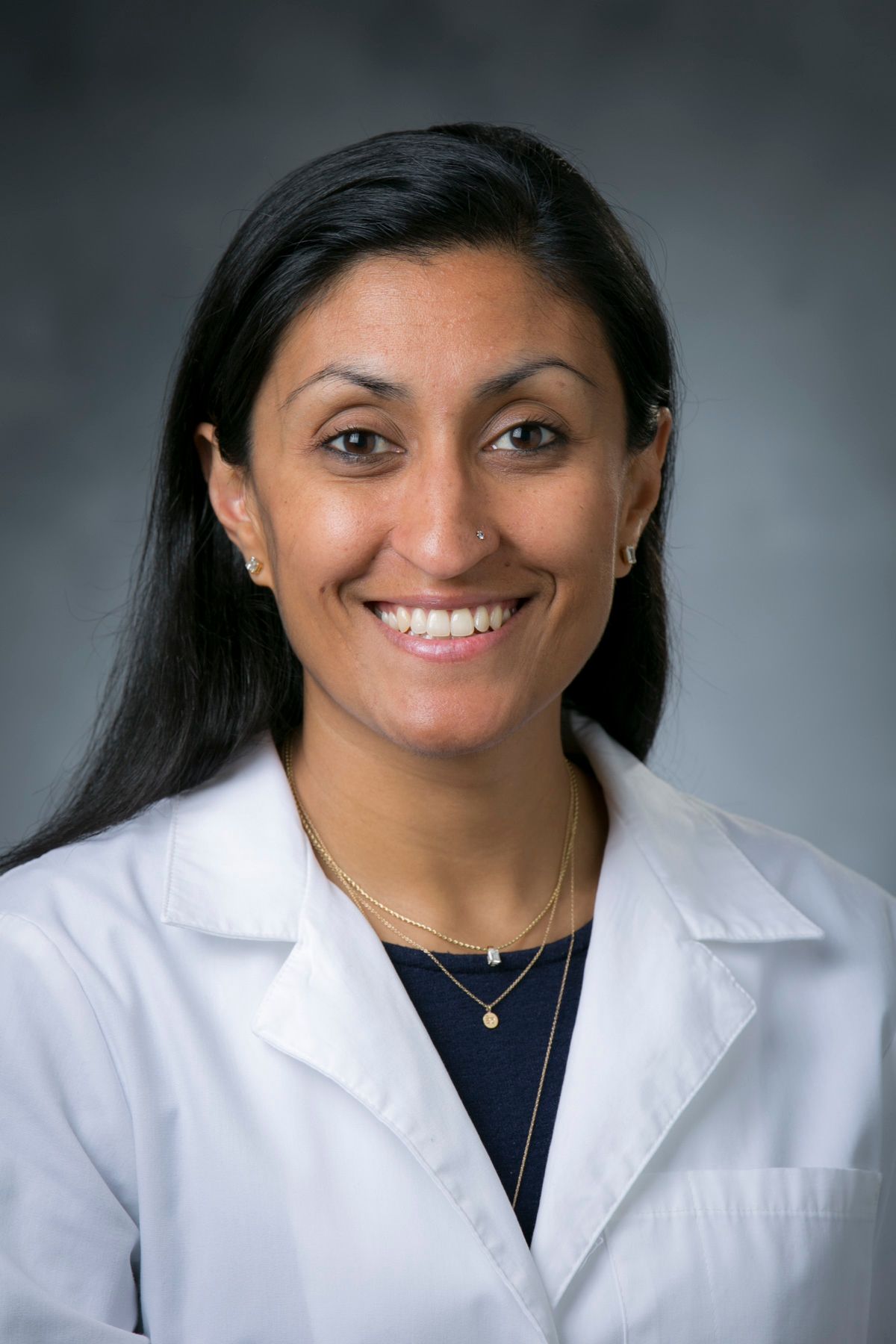Article
Coordinated, Multidisciplinary Approach Can Dramatically Improve GDMT Prescription for Type 2 Diabetes
Author(s):
Data from COORDINATE-Diabetes presented at ACC 2023 demonstrate the impact of a multifaceted, coordinated care approach on improving prescription rates of statins, ACEs/ARBs, and glucose-lowering medications among people with type 2 diabetes.
Neha J. Pagidipati, MD, MPH
Courtesy: American College of Cardiology

A study evaluating a multifaceted intervention encouraging collaborative care of people with type 2 diabetes indicates such an approach was associated with a 4-fold increase in prescription of guideline-directed medical therapies among this patient population.
Presented at the American College of Cardiology’s (ACC) 2023 Annual Scientific Session Together With the World Congress of Cardiology, results of the study underline the importance of a coordinated, multidisciplinary approach to care of people with type 2 diabetes.1
“As important as it is to develop new therapies, it is at least as important, if not more important, to focus on actually getting those therapies to the patients who need them,” said lead investigator Neha J. Pagidipati, MD, MPH, associate professor of medicine in cardiology at Duke University School of Medicine and Duke Clinical Research Institute.2 “This study proves that the prescription of these medications can be substantially improved, and we know that more use of these medications will prevent cardiovascular events. The next step will be disseminating these results.”
Funded by Boehringer Ingelheim and Eli Lilly and Company, COORDINATE-Diabetes was a multicenter, cluster randomized clinical trial launched with the intent of assessing whether a coordinated, multifaceted intervention increase the prescription of high-intensity statins, ACE inhibitors or ARBs, and SGLT2 inhibitors and/or GLP-1 receptor agonists. Led by Granger and colleagues at the Duke Clinical Research Institute, the trial enrolled 1049 patients and was conducted in 43 US cardiology clinics recruiting participants from July 2019-May 2022, with follow-up through December 2022.1
The intervention used in the trial consisted of a multi-pronged approach provided to clinic personnel by the coordinating center trio of a cardiologist, endocrinologist, and implementation specialist. Overall, the intervention included 6 components:
- A clinic-specific analysis of the barriers to evidence-based care
- Development of local interdisciplinary care pathways to address barriers.
- Coordination of care between clinicians.
- Clinician education.
- Audit and feedback of quality metrics.
- Educational materials were provided to the participants.
The primary outcome of interest for the trial was the proportion of participants prescribed all 3 groups of recommended therapies at 6-12 months after enrollment. Secondary outcomes of interest for the trial included changes in atherosclerotic cardiovascular disease risk factors and a composite outcome of all-cause death or hospitalization for myocardial infarction, stroke, decompensated heart failure, or urgent revascularization. However, investigators pointed out the trial was not powered to show these differences.
Of the 1049 who underwent enrollment in the study, 459 were recruited from 20 intervention clinics and 590 were recruited from 23 usual care clinics. This cohort had a median age of 70 years, 32.2% were women, 16.5% were Black, and 8.6% were Hispanic.1
Upon analysis,results indicated those randomized to the intervention arm of the trial were more than 4 times more likely to be prescribed all 3 therapies than their counterparts in the usual care arm (37.9% vs 14.5%; adjusted odds ratio [aOR], 4.38 [95% CI, 2.49-7.71]; P <.001). Further analysis indicated these patients were also more likely to be prescribed each of the 3 therapies when examining uptake individually. Investigators noted there was no associated between receiving the intervention and changes in atherosclerotic cardiovascular risk factors. Additionally, analysis of secondary outcomes suggested such an event occurred in 5% of those in the intervention group and 6.8% of those in the usual care group (adjusted hazard ratio [aHR], 0.79 [95% CI, 0.46-1.33]).1
“The use of a multidisciplinary care approach to optimize care and outcomes for people with type 2 diabetes and cardiovascular disease is critical given the public health impact of these diseases,” said Christopher Granger, MD, professor of medicine in the Division of Cardiology at Duke University.3 “We have shown, with the highest level of evidence through randomization, that patients will get better care when they are treated by a dedicated team of doctors and specialists, with assessment of barriers, tools to address barriers, care pathways and feedback, with education of both providers and patients. COORDINATE-Diabetes shows how collaboration among providers can help achieve better care.”
References
- Pagidipati NJ, Nelson AJ, Kaltenbach LA, et al. Coordinated Care to Optimize Cardiovascular Preventive Therapies in Type 2 Diabetes: A Randomized Clinical Trial. JAMA. Published online March 06, 2023. doi:10.1001/jama.2023.2854
- Multifaceted strategy boosts preventive care for diabetes, heart disease. American College of Cardiology. https://www.acc.org/About-ACC/Press-Releases/2023/03/06/14/01/Multifaceted-Strategy-Boosts-Preventive-Care-for-Diabetes-Heart-Disease. Published March 6, 2023. Accessed March 6, 2023.
- Intensive education at clinics about multidisciplinary care improved likelihood that adults with type 2 diabetes and cardiovascular disease were receiving guideline-directed medicines, according to Real-World Study. Eli Lilly and Company. https://investor.lilly.com/news-releases/news-release-details/intensive-education-clinics-about-multidisciplinary-care. Published March 6, 2023. Accessed March 6, 2023.





